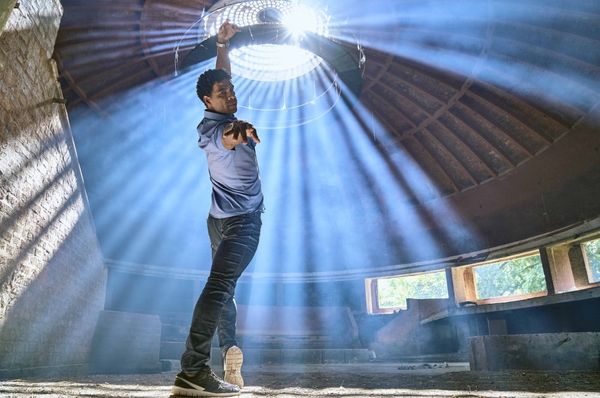Eye For Film >> Movies >> Yuli (2018) Film Review
Yuli
Reviewed by: Amber Wilkinson

Director Iciar Bollain and screenwriter Paul Laverty favour the flow of emotions over straightforward biopic devices in their approach to the life of ballet star Carlos Acosta in biopic Yuli. Based on the Cuban dancer's memoir No Way Home, the film focuses on Acosta's childhood and, as he grows older, his complex relationship with his father (played by Santiago Alfonso) - who was the driving force behind his ballet, an ambition which, for years, Acosta refused to embrace.
It is this surprising element - Acosta's reluctance despite natural talent - that gives the film an unusual tone, marking it out from a sea of stories about strivers, like Billy Elliot, desperate to succeed. Yuli captures moments in the dancer's life - from his younger years to his rise to be the first black principal of The Royal Ballet and its first black Romeo, which Bollain is happy to illustrate with archive footage of his actual performance that slots satisfyingly into the film. These episodes take on an extra dimension by being presented as remembered 'stories', suggesting that everything we recall is, at least to some extent, created and shaped after the event - the same creative urge, perhaps, that allows real feelings to be transported into the realm of dance.

Acosta (played with skill by Edlison Manuel Olbera Núñez and Keyvin Martínez in his younger years) also appears in the film, allowing Bollain to fully embrace the dance element, even if he's not going to win any acting awards. It's in dance that the film's strength lies, illustrating, through choreography, Acosta's more abstract - and more negative - emotions, including fear, loneliness and lust. These sequences are moving in both senses of the phrase, especially one in which Acosta takes on the role of his own domineering dad. Acosta's emotions are further accentuated in the film's non-dance sequences by cinematographer Alex Catalán's colour palette, which moves from the warm colours of Cuba to the permanently rain-sodden blues of London in its second half.
Bollain and Laverty have mainstream success in mind here - and why shouldn't they? - so there is a little glossing over of some of the deeper themes, especially concerning race and Cuba, but they largely avoid sentimental stickiness in favour of emotional substance and let Acosta's dancing skills do the heavy lifting when it matters.
Reviewed on: 20 Feb 2019
















